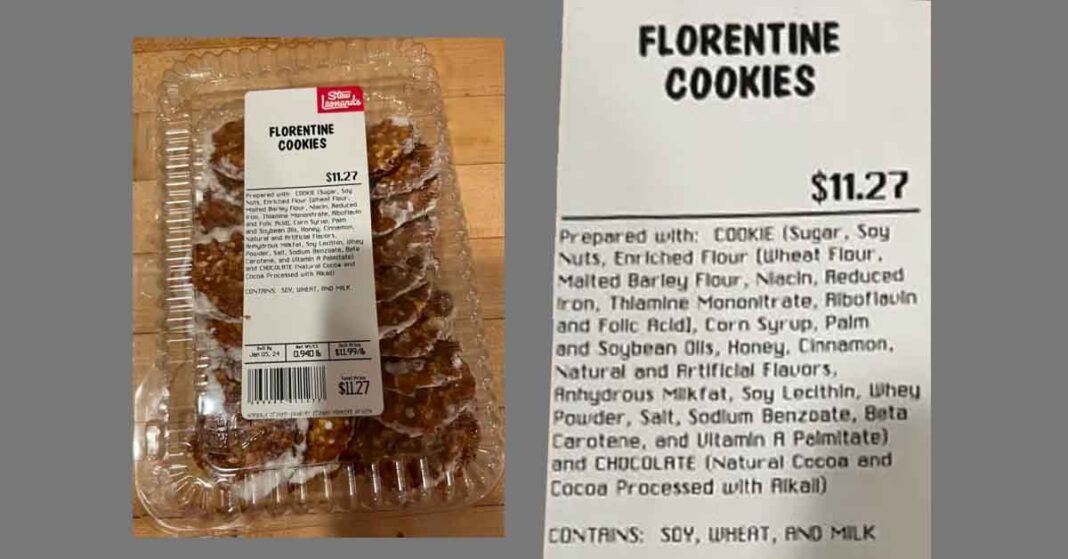Update: since this story was first published, the victim was identified as Órla Baxendale, a 25-year-old dancer from the UK who moved to New York City to pursue her career.

The Baxendale family lawyer issued the following statement according to WNBC-TV:
“Órla’s family, devastated by this unimaginable loss, wishes to express their gratitude for the outpouring of support and tributes from around the world. She was a radiant and brave soul who pursued her dreams relentlessly, leaving an indelible mark on the hearts of those who knew her.
“Our thoughts and sympathies go out to the family, friends, and the global dance community mourning the loss of this extraordinary individual.”
It was also confirmed by the manufacturer that peanuts were intentionally added as an ingredient.
The article has been updated.
Following the death of a woman from New York in her 20’s, the CT Department of Consumer Protection has issued a warning about cookies manufactured by Cookies United and sold under the Stew Leonard’s name.
Stew Leonard’s issued the following recall:
Stew Leonard’s, in partnership with the Food and Drug Administration, is recalling Vanilla Florentine Cookies that were sold only at Stew Leonard’s in Danbury and Newington, Conn. from November 6 – December 31, 2023. The cookies contain peanuts. Customers with nut allergies should bring back the product to customer service for a full refund.
Here is a FOX 61 news report of the incident:
Following the recall, Stew Leonard Jr, President and CEO of Stew Leonard’s, issued the following statement:
This has never happened at Stew Leonard’s before. We have very strict food safety practices and one of them is having all proper ingredients listed on our labels. Unfortunately, we are buying these cookies from a company who never told us they changed the ingredients. We sold them in good faith and one customer was affected. We were devastated to learn this news and our family is sending our deepest condolences.
There is no doubt that negligence was the cause, but US labeling regulations are partially to blame.
Cookies United changed their recipe to include peanuts and the product label was not updated to reflect peanuts as an ingredient in violation of FALCPA regulations. Aside from that fatal omission, it is clear that the cookies were never labeled to indicate that peanuts were processed in the facility, totally legal under today’s labeling regulations.
Many in the US allergic community don’t realize that Precautionary Allergen Labeling (PAL), which includes warnings like “May contain soy” and “Made in a facility that also processes peanuts” are entirely voluntary and there are no regulations for when they should be used, how they should be worded, or where they should appear on the label. Some manufacturers include them, many major brands don’t, and still others will warn for one allergen and not another.
Had the recalled product contained a PAL warning that peanuts were processed in the facility, the victim of peanut exposure might still be alive today.
Here is a graphic summarizing the problem:

But the problem goes beyond allergen labeling. Apps like Fig and Sifter that purport to help allergic consumers find safe products rely solely on the information provided on the label and often suggest products that are made on the same line as allergens of concern. In this case, neither would have warned the user that peanuts were processed in the facility.
It’s clear that US labeling regulations must evolve to better protect the allergic community. To that end, we’ve identified four simple changes that would make allergen labeling much safer.
- Stew Leonard’s & FDA Recall Vanilla Florentine Cookies — Company Press Release
- Recall of Stew Leonard’s cookies in Connecticut after peanut allergy death — FOX 61
These Four Changes Would Make Food Labeling MUCH Safer for the Allergic Community





